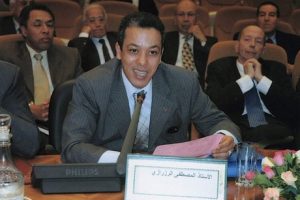 Morocco has set up an observatory dedicated to studying extremism and violence in the modern world. This research and academic think-thank will provide scientific and extensive analysis to help protect society against extremism and radical ideologies.
Morocco has set up an observatory dedicated to studying extremism and violence in the modern world. This research and academic think-thank will provide scientific and extensive analysis to help protect society against extremism and radical ideologies.
“As the world is experiencing a growing threat of political violence and extremist movements, the scientific scene is lagging behind in monitoring the phenomena of extremism and violence according to a comprehensive approach”, said the founders of the Observatory.
The new body will support efforts made in the fight against violence and combat the phenomenon of intellectual and religious extremism. Moroccan authorities are waging tireless war against Islamist extremists and fanatics.
The new Observatory whill be headed by El Mostafa Rezrazi, an eminent Japan-based prolific Moroccan scholar who has accumulated commanding research on issues relating to extremism and geopolitics, including a Ph.D. on the psychological dynamics among suicidal jihadists.
Morocco has worked out a comprehensive counterterrorism strategy that includes vigilant security measures, regional and international cooperation, and counter-radicalization policies.
This strategy has been built on a global approach based on prevention, anticipation, education, rehabilitation, eradication of terrorism roots and international cooperation.
The North African country has placed counterterrorism at the top of its priorities following the Casablanca terror attacks in 2003 and the subsequent attacks of 2007 and 2011.
In 2015, Morocco’s counterterrorism efforts mitigated the risk of terrorism but the country continues to face threats, largely from numerous small, independent violent extremist cells.
The Moroccan authorities have dismantled multiple groups with ties to international networks that included ISIS. Al Qaeda in the Islamic Maghreb (AQIM) and ISIS continue efforts to recruit Moroccans.
According to foreign intelligence reports, approximately 1,500 Moroccans are believed to have joined terrorist organizations since 2011, with 719 fighting alongside ISIS.
The Moroccan government is concerned about the potential return of veteran Moroccan jihadist fighters from those conflict zones to conduct possible terrorist attacks at home.
